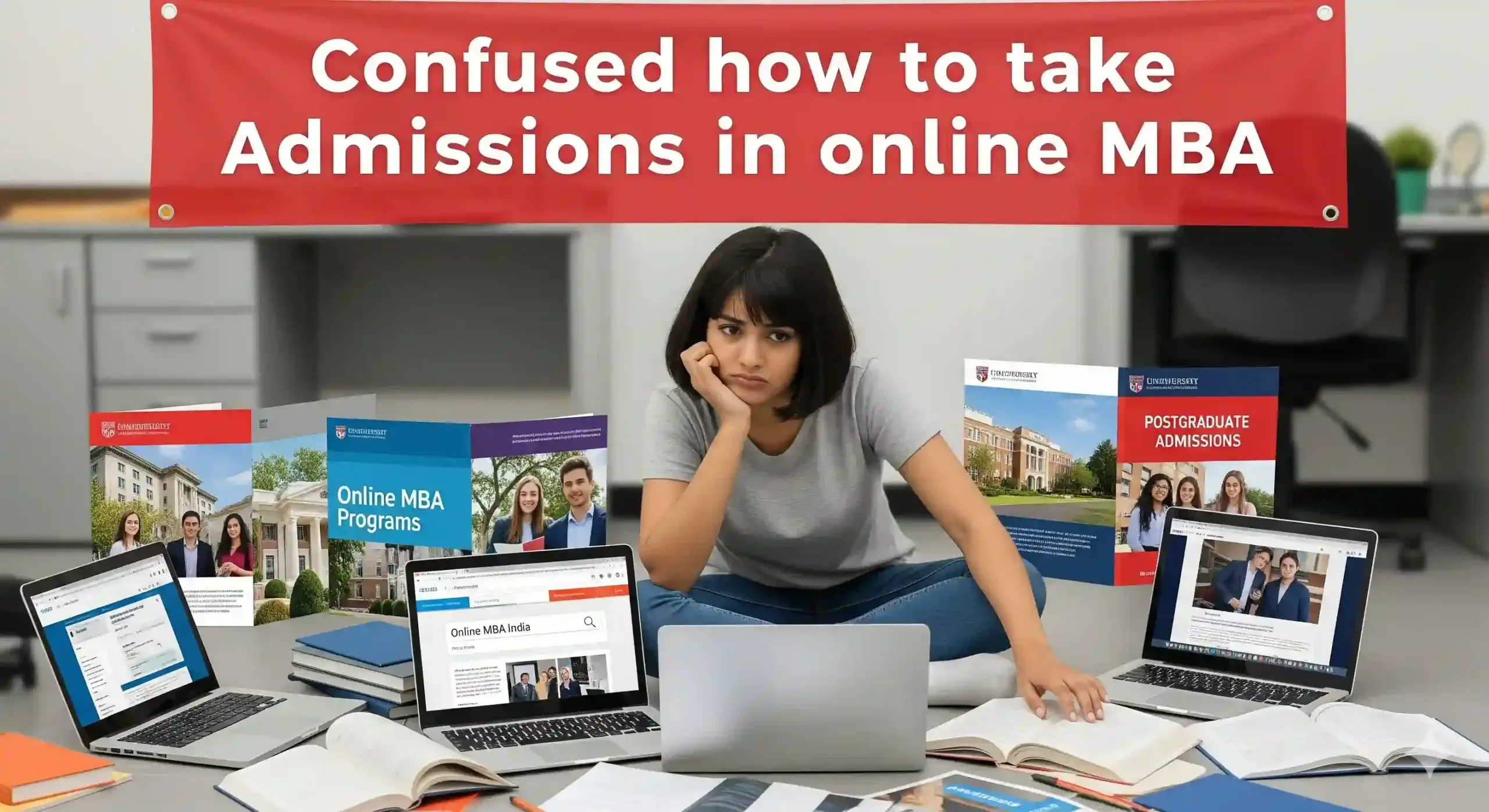
Most online MBA programs ask for a bachelor’s degree, a solid GPA, some work experience, a resume, 1–3 recommendation letters, short essays or a statement of purpose, official transcripts, and an application fee. Many ask for GMAT or GRE scores but often offer waivers. International applicants usually need English test scores. Some schools also interview and may require prerequisite business courses.
Quick eligibility snapshot
- Bachelor’s degree from a recognized or accredited institution
- Competitive GPA, often 2.8–3.3 or higher
- 0–5+ years of full-time work experience, depending on program type
- GMAT or GRE score, or a waiver based on experience or prior academics
- English proficiency test for non-native speakers
- Resume, essays, and recommendation letters
- Official transcripts and an application fee
- Interview for selected candidates
1) Academic prerequisites
Bachelor’s degree: Most programs require a 4-year degree or the local equivalent. Your major does not have to be business.
GPA expectations: Many schools list a recommended minimum GPA. If your GPA is lower, a strong test score, solid experience, or extra coursework can help balance it.
Prerequisite courses: Non-business majors may be asked to complete basics like accounting, statistics, or economics. Some schools bundle these in a short “foundation” module before term start.
2) Standardized tests: GMAT or GRE
Do you need a test? Policies vary. Many reputable online MBAs are test-optional or offer waivers.
Common waiver paths:
- Several years of professional experience or leadership
- Prior graduate degree
- High undergraduate GPA or quantitative coursework
- Professional certifications such as CPA, CFA, FRM
Tip: If your GPA or quantitative background is light, a good GMAT or GRE can boost your case.
3) Work experience
Typical range: 2–5 years for a standard online MBA.
Early-career tracks: Some programs welcome applicants with limited experience, especially if they bring strong academics or internships.
Executive or leadership tracks: Often expect 5–10+ years and clear evidence of people or budget responsibility.
4) Documents you will submit
- Resume: Keep it achievement-focused. Show scope, results, and progression.
- Essays or Statement of Purpose: Explain your career goals, why this MBA, and why now. Be specific about skills you want to build and how you will contribute to the cohort.
- Recommendation letters: Usually 1–3, ideally from current or former supervisors who can speak to your impact, leadership, and teamwork.
- Transcripts: Official copies from every post-secondary institution you attended.
- Application fee: Amount varies by school. Fee waivers may be available for early applicants or specific events.
- Interview: Many programs interview to assess fit, communication, and motivation.
5) English proficiency for international applicants
If English is not your first language, you will likely need TOEFL, IELTS, or Duolingo English Test scores. Some schools waive this if your prior degree was taught in English or if you have lived and worked in an English-speaking country.
6) Deadlines and intakes
Online MBAs often run multiple intakes per year and may use rolling admissions. Earlier applications have better chances for scholarships and class availability. Always confirm the round structure, cut-off dates, and decision windows on the program page.
7) Accreditation and recognition
Choose a program that is properly recognized in its region and, where relevant, holds programmatic accreditation such as AACSB, AMBA, or EQUIS. Recognition protects the value of your degree and can matter for employers and future study.
8) Technical readiness
Since learning is online, schools may list basic tech requirements: a recent laptop, reliable broadband, a webcam and mic, and comfort with learning platforms. Some programs run live sessions at set times, so check time-zone expectations.
9) How to strengthen your application
- Show measurable impact: Use numbers on your resume and in essays to highlight results.
- Explain your goals clearly: Tie your short-term and long-term goals to the program’s strengths.
- Address gaps head-on: If your GPA is low or you lack quant courses, take a stats or accounting class and mention it.
- Choose recommenders wisely: Pick people who can give specific examples of your work, not just titles.
- Prepare for the interview: Be ready to discuss career moves, challenges you solved, teamwork, and why the program is the right fit.
10) Common variations by program
- No-GMAT pathways are common, especially for experienced candidates.
- Foundation modules replace prerequisite course demands for non-business majors.
- Accelerated tracks may expect stronger academic or work profiles.
- Executive online MBAs lean heavily on leadership experience and may not require tests.
Sample checklist you can use
- Bachelor’s degree verified
- GPA meets program range or you have a plan to offset it
- GMAT/GRE taken or waiver path confirmed
- Resume updated with outcomes and metrics
- Essays drafted and tailored to the school
- 2–3 recommenders briefed and willing
- Official transcripts requested
- English test booked or waiver confirmed
- Application fee ready
- Interview prep started
Do I need the GMAT or GRE?
Not always. Many online MBAs are test-optional or grant waivers for strong work experience or prior academics.
Can I apply without a business background?
Yes. You may complete foundation modules or prerequisites in accounting, statistics, or economics.
How much experience do I need?
Standard online MBAs prefer 2–5 years. Executive-style programs look for more. Some early-career options accept limited experience.
Will a lower GPA end my chances?
Not necessarily. Strength in other areas, relevant certifications, recent quantitative coursework, or a solid test score can help.
Are interviews required?
Often, yes. Interviews let the school assess fit and communication. Treat it like a professional conversation about your goals and readiness

